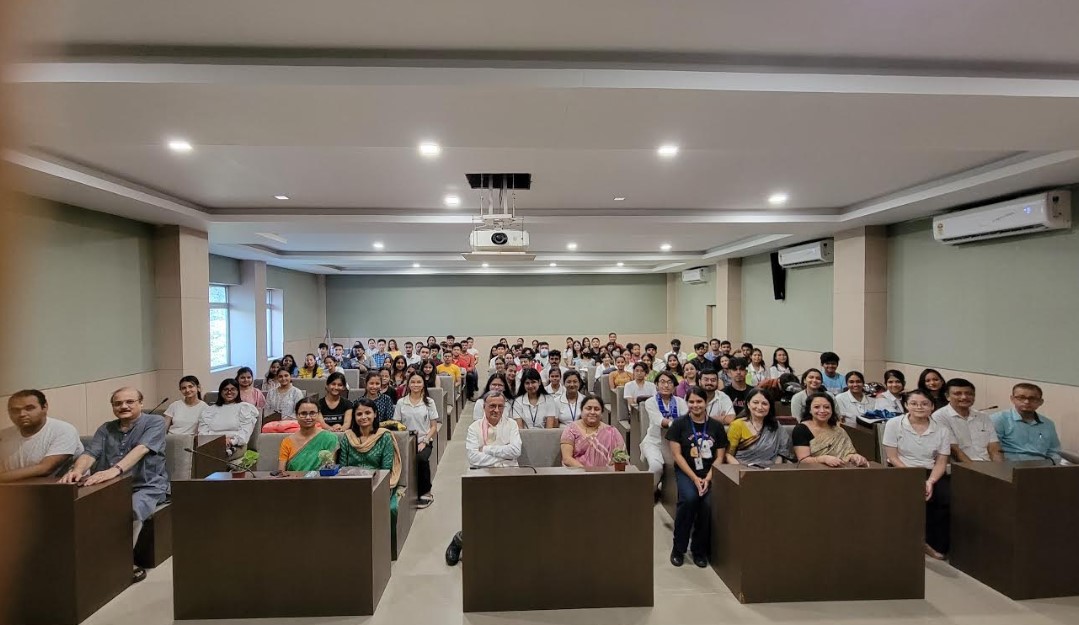BA (Liberal Arts)
Bachelor of Liberal Arts
(A brief concept note)
Cotton University officially launched a three - year degree program in 2020 called Bachelor in liberal arts for candidates who have cleared their 10+2 examination in any of the three disciplines (Arts, Science or Commerce). This program can offer students the opportunity to study a broad range of subjects while developing specialized knowledge in their major discipline. This program offers a better curricular flexibility demolishing currently prevalent rigid boundaries in traditional B.A. or B.Sc degree. It enables a student to acquire knowledge across disciplines and design a unique course of study to cater to their need and future plan. The institutes in India where a bachelor in liberal arts program already exists are very few in number. The necessity of such institutes is stressed in the New Education policy. The current initiative is aimed at establishing the first institute in this region to offer liberal arts program and to impart a high quality and socially relevant education.
Duration of the course: 3 (three) years Number of Semesters: 6 (six) Number of seats: 30 (thirty)
Outline of Courses and Credits:
The Bachelor in Liberal Arts course shall follow a six-semester pattern with a required minimum total of 132 credits. Each course in the program shall be from one of the following categories:
- Foundation course: A course that the candidate offers in first two semesters will be a foundation course. The candidate can choose any four subjects as the foundation courses from a given pool of diverse subjects across disciplines. The student has to choose one subject from these as a core course (will be called specialization) from third semester onwards. The idea of studying foundation courses is to allow the students sufficient time to develop interest towards a particular subject and to identify the subject that can help him/her in achieving future goal.
- Core Course: The course a candidate chooses to study most intensively is termed a Core Course. Core courses can be chosen in the third semester.
- Elective Course: A course which can be chosen from a pool of courses and which may extend the discipline/subject of study or which provides exposure to some other discipline/subject is termed an Elective course.
- Ability Enhancement (AE) Courses: The ability enhancement courses are of two types.
Ability Enhancement Compulsory Course (AECC): These are three mandatory courses namely, (a) Environmental Studies, (b) English Communication and (c) Research Methodology.
Skill Enhancement Course (SEC): These courses may be chosen from a pool of courses designed to provide skill-based knowledge. The primary purpose is to provide students with life-skills in hands-on mode to increase their employability.
- Dissertation/Capstone A course in which students pursue independent research on a question or problem of their choice with advisory support by a faculty member to produce a substantial report.
Course pool:
Foundation courses / Core courses:
English, Economics, Mathematics, Pol. Sc, Psychology, Philosophy, History, Education, Statistics, Sociology, Geography, Wildlife Science
Enabler/ Elective courses:
Archaeology, Film and Media studies, Cultural studies, Tribal studies, Veda studies, Sanskrit, Assamese, Data Analysis, Business Mathematics, Gender studies, Legal studies, Library and Information Science
Skill Enhancement courses:
Classical music, Satriya Dance, Drama, Design, Fine arts, Creative writing, Yoga and Physical education, Entrepreneurship, Website development, Foreign (French and German) language basic course
Semester-wise Courses and Credit Distribution
A student must earn 132 credit points to be awarded the BA (liberal arts) degree.
A snap of the Orientation Programme of the BLA Course students


